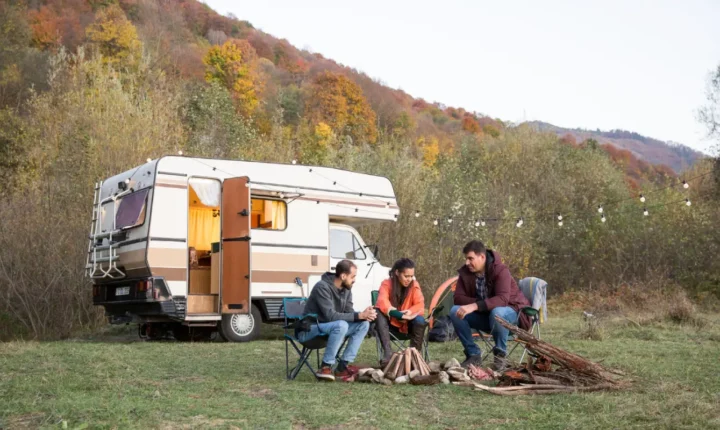Embarking on Your First RV Adventure: A Beginner’s Guide
Setting out on your inaugural RV journey is a thrilling way to explore with freedom and comfort, allowing you to enjoy both the wonders of nature and the conveniences of home. Whether your aim is a weekend getaway or an extended cross-country trip, thoughtful preparation is essential for a successful experience. If you are eager to dive deeper into RV travel, learn more about selecting the right RV and practical tips that will help you make the most of your first adventure.
A well-planned RV trip opens the door to countless opportunities for adventure, but also brings unique challenges for beginners. To ensure your maiden trip goes smoothly, you’ll need to pick the right type of RV, map out your route, and get familiar with must-have basics before hitting the road. Below, you’ll discover actionable advice and guidance that covers everything you need to know so your experience is safe, enjoyable, and memorable.

Choosing the Right RV
Selecting the appropriate RV is foundational to a successful trip. Start by evaluating your travel goals and the number of people traveling with you. RVs come in various types, from smaller camper vans and travel trailers to larger Class A motorhomes.
Beginners often find smaller models less intimidating and easier to handle, especially when parking or driving through tight areas. Think about the amenities you’ll need, such as a full kitchen, bathroom, or extra sleeping space. Visit an RV dealership or rental outlet to walk through different models in person before making a choice.
Planning Your Route
A carefully mapped route prevents headaches and maximizes your enjoyment along the way. Use tools such as RV-specific GPS apps that consider bridge heights and weight restrictions. Research popular destinations, scenic byways, and RV-friendly campgrounds, then reserve your sites early, especially during peak seasons.
Websites like Road Adventures offer inspiration and advice on the best RV routes in the country. Flexibility is important on the road, but a solid plan ensures you won’t be left scrambling for a place to park at the end of a long day.
Understanding RV Operations
Operating an RV involves more than just driving—it’s a mobile home with its systems. Before departure, familiarize yourself with the workings of the electrical system, water hookups, waste disposal, and propane tanks. Take a video tour during the RV walkthrough and keep notes for troubleshooting later. Owners’ manuals and online video tutorials are invaluable for troubleshooting minor issues during your travels.
Packing Essentials
Efficient packing is key for both comfort and safety while traveling in an RV. Stick to the essentials: lightweight bedding, basic cookware, versatile clothing, and necessary toiletries. Safety items, such as a comprehensive first aid kit, fire extinguisher, and emergency roadside gear, should be prioritized.
Be mindful not to overpack, as excess weight can affect fuel efficiency and handling. For ideas on what to pack and how to prepare, browse extensive checklists and resources from reputable travel sites such as RV LIFE.
Driving and Maneuvering
Taking the wheel of an RV is different from driving a car or SUV. Before you embark, practice driving in a large parking lot to get used to the vehicle’s size, acceleration, and turning radius. Make use of mirrors and backup cameras, and ensure your line of sight is clear. Always maintain a safe following distance, and take extra care when braking or merging onto highways. Scheduling regular driving breaks reduces fatigue and increases safety during long travel days.
Campground Etiquette
RV campgrounds are shared spaces, so courtesy is vital. Follow campground rules, respect posted quiet hours, and keep your site tidy. Properly dispose of trash and wastewater in the designated areas. Give your neighbors space and avoid walking through occupied sites. Adopt these habits to foster a welcoming environment for everyone, and your reputation as a conscientious camper will grow.
Safety Tips
Safety is a top priority for any RV journey. Conduct thorough pre-trip inspections, including checking tire pressure, fluid levels, and the functionality of lights and signals. Always have an emergency kit readily accessible and know how to respond to common roadside issues. Keep track of local weather forecasts and stay aware of changing road conditions.
Budgeting for Your Trip
Creating a realistic budget allows you to make the most of your journey without unexpected expenses—factor in fuel, campground fees, groceries, activities, and possible maintenance or repair costs. Plan meals and activities or use free and low-cost resources to align with your financial plan. For long trips, consider tracking expenses in a spreadsheet or mobile app for better control and peace of mind.
Embarking on your first RV trip is an extraordinary way to experience the world around you. With a blend of careful planning, resourcefulness, and an open mind, you’ll be able to create lasting memories, discover new places, and enjoy all the comforts of home—wherever the road might take you.
Experience The World Comfortably
Embarking on your first RV trip is an extraordinary way to experience the world around you. With a blend of careful planning, resourcefulness, and an open mind, you’ll be able to create lasting memories, discover new places, and enjoy all the comforts of home—wherever the road might take you.


